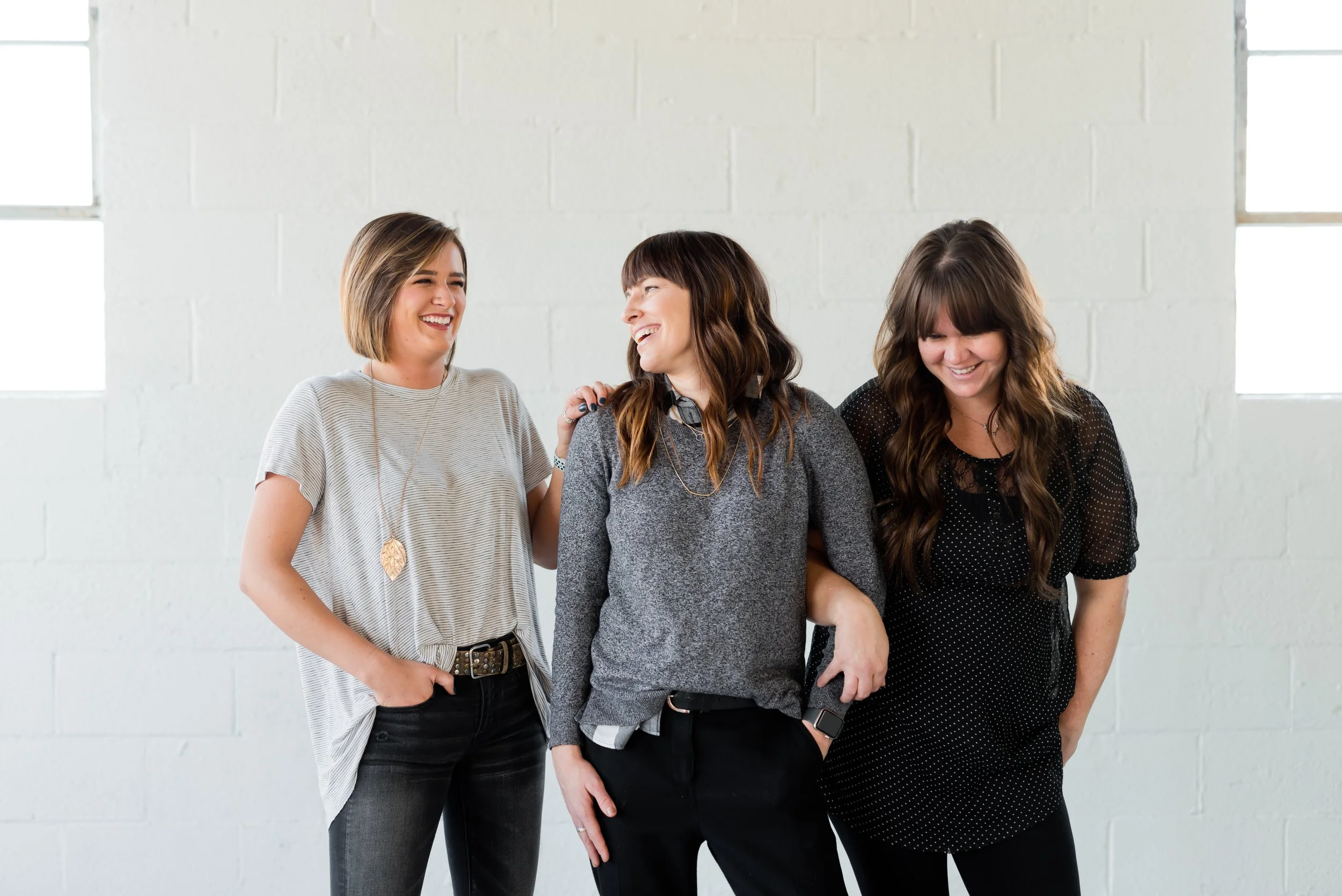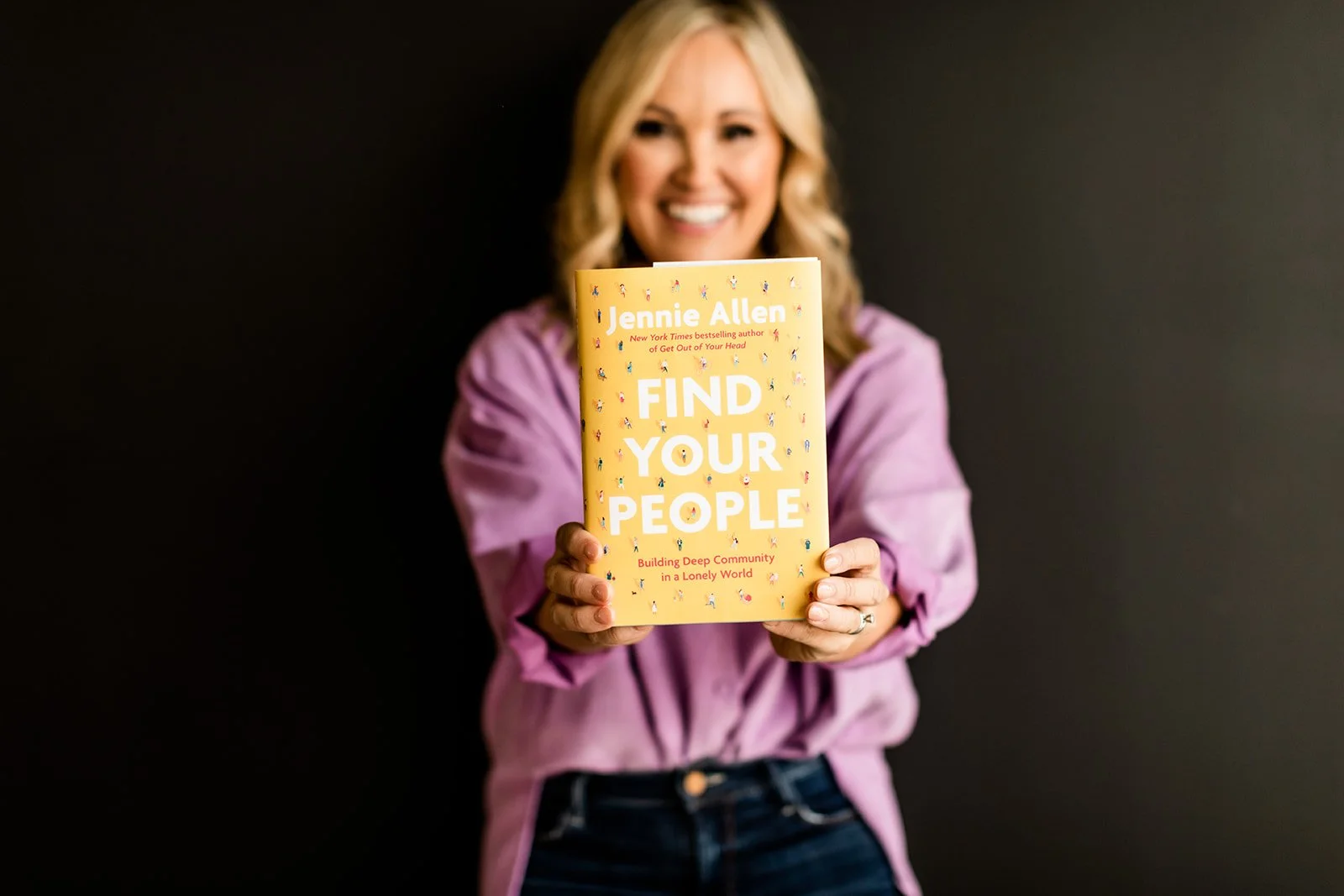Vulnerability Deepens Community
A Chat with Dr. Curt Thompson
It often feels impossible to be vulnerable around our loved ones. Fear and shame prevent us from revealing the deepest parts of ourselves. While this fear is understandable, vulnerability benefits us more than we might be willing to admit.
Why We Should Open Up More
Dr. Curt: Vulnerability means being able to open up to another person. This involves sharing parts of our stories we may consider shameful or painful. Our stress levels drop when we are connected to people. Being vulnerable is as soothing to the body as it is to the mind. The only way we know that sharing parts of ourselves feels vulnerable is because our body is sensing it. When you say the words, you transfer the distress your body is feeling.
We all long to be connected more than we're aware. Vulnerability builds community and human connection because sharing a painful experience with someone is like having them hold your hand. Sometimes we're not aware of our vulnerabilities, and we carry the stress around because we are disconnected.
But why is vulnerability so hard for us if it’s good?
Dr. Curt: We fear that we’ll lose the people in our lives if we share a vulnerable story, and this is a lie that evil propagates.
“The gospel says vulnerability is beauty waiting to take place in this space of people who long to be seen and known just as you do.”
Secondly, evil does not want us to share our experiences.
So, it will do everything to keep your community from growing.
Being vulnerable is hard because we're human. We've got generational trauma we’re deeply unaware of, and we're working against an adversary who's not messing around.
Despite the proven benefits of opening up, some people don’t see a point in bringing up the past. This is rooted in the belief that we should “let sleeping dogs lie,” as they say. But from a neurobiology standpoint, your trauma is not in the past. Your experiences are actively stored in your brain, and they can manifest in different ways. In our brain, those experiences are happening now.
Your brain does its best to keep you from paying attention to painful experiences. Our wounds are not “negative” things we should avoid. We are destined to create beauty and goodness, and our wounds represent parts of us that long for that connection.
So, how do you start sharing your vulnerabilities?
Dr. Curt: I’m a happy member of a confessional community. We have a storytelling liturgy where we encourage each other to share our experiences. It is a safe community where I can be my true self without being judged.
Writing is the least intimidating alternative to a confessional community. Take 30 minutes to handwrite an autobiography about the first decade of your life. It doesn’t have to be a literary masterpiece; just pour your heart out. Pay attention to things that are emotionally significant to you. Then, take a break before writing about another decade. Long handwriting allows your brain to discover things you don't always remember.
Vulnerability starts within
Dr. Curt: Most people believe they have had no trauma in their lives. This is largely because we often neglect the nicks and cuts that have taken place in our lives. The small nicks we don’t acknowledge take a lot of energy to contain. Evil likes to convince us that we haven’t been traumatized, so we don’t do anything about it.
“If you don’t face your trauma, you could swim in an ocean of anxiety that consumes you.”
It’s important to name what you are feeling. Once you’ve named your feeling, talk to someone you trust. When you speak to an attentive and empathetic listener, you’ll feel seen and understood.
The more frequently you do that, the more attention you pay to your brain. Anxiety is the brain’s way of trying to get our attention. And if we name the things we feel, then we can begin to process what's true about our souls.
If the people in our lives don’t get tired of hearing us say how we feel, we become more comfortable over time. And so, we allow ourselves to share the most wounded parts of ourselves. As a result, we’re not alone in our experiences anymore.
Creating a safe space for vulnerability in your community
Dr. Curt: It’s important to open yourself up to the vulnerabilities of others. This means being a comfortable and confident listener in the presence of others. And so, you must be aware that the most helpful thing you bring to the conversation is your presence and empathic listening, not a ready-made set of solutions.
As a ‘safe’ person, you must be mindful of how you feel when you hear someone’s story. We often give unsolicited solutions because someone’s story creates a discomfort we need to resolve. In that discomfort, we end up making someone’s story about our own problems, and that’s not helpful to the other person.
We can be very unaware of the power of our presence and attunement to others. So, be a person that others can trust. They must know that their conversation with you is in confidence. You must also accept that someone might not be ready to share some parts of their story.
If you’re going to have a deeper conversation, you must acknowledge that it will take time. It could take days, weeks, months, or years because there are many layers to human emotions. There will always be more to say as time goes by.
This post is an edited snippet of our interview with Dr. Curt Thompson on the podcast. You can listen to the full episode above for even more gems. Dr. Thompson is an amazing psychiatrist who brings a Christian perspective to his field. He has published three books, the most recent being ‘The Soul of Desire.’



